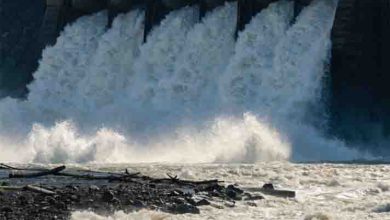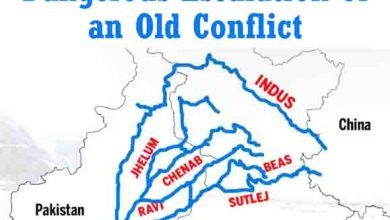Pakistan Urges India to Uphold Indus Waters Treaty After Court’s Decisive Ruling
Pakistan welcomes Hague Court’s ruling rejecting India’s suspension of the Indus Waters Treaty, urging India to resume obligations under the historic agreement.
The Indus Waters Treaty (IWT), signed in 1960 under the mediation of the World Bank, is considered a landmark water-sharing agreement between Pakistan and India. It allocates the three eastern rivers—Ravi, Beas, and Sutlej—to India, and the three western rivers—Indus, Jhelum, and Chenab—to Pakistan. Despite wars and conflicts, the treaty has largely remained intact, earning recognition as one of the most durable water treaties globally.
However, tensions have escalated in recent years as India undertook hydroelectric projects such as Kishenganga and Ratle on the western rivers, prompting Islamabad to raise legal objections under the IWT dispute resolution mechanism.
Hague Court’s Supplemental Award
In a critical legal development, the Court of Arbitration in The Hague delivered a Supplemental Award on June 28, 2025. The court decisively rejected India’s attempt to unilaterally suspend the Indus Waters Treaty, stating that there is no legal basis within the treaty to allow such a unilateral action.
The court reaffirmed its jurisdiction over the dispute and clarified that the Indus Waters Treaty remains fully valid and operational. This Supplemental Award was deemed necessary after India’s controversial decision to place the treaty “in abeyance” following a militant attack in Pahalgam earlier this year.
Pakistan’s Response: A Call for Immediate Compliance
On Monday, Pakistan’s Foreign Office officially welcomed the Supplemental Award, expressing satisfaction that its longstanding position had been vindicated.
“The Court’s findings reaffirm that India cannot act unilaterally regarding the Indus Waters Treaty. We urge India to immediately resume its obligations and cease any action that undermines the treaty,” the Foreign Office stated.
Pakistan emphasized the urgency of restoring the treaty’s normal functioning, calling for a recommitment to international law and diplomacy.
India’s Controversial Suspension of the Treaty
India’s announcement on April 23, 2025, to suspend the Indus Waters Treaty was met with widespread international concern. The move came in response to a deadly militant attack in Indian-administered Kashmir, which New Delhi claimed had cross-border origins.
India’s unilateral declaration raised alarms in diplomatic circles, as experts argued that such a measure could set a dangerous precedent for other transboundary treaties globally. The Indian government has yet to respond formally to the Hague Court’s Supplemental Award.
Implications for Regional Water Diplomacy
This ruling is likely to have far-reaching consequences for South Asian water politics. Experts suggest that the decision strengthens Pakistan’s legal standing while placing diplomatic pressure on India to return to the negotiation table.
According to Dr. Shamsher Malik, a hydropolitics researcher at Quaid-i-Azam University:
“The court’s decision reinforces the credibility of international mechanisms in resolving water disputes. India’s isolationist approach is legally unsustainable.”
This could potentially open the door for renewed bilateral negotiations or World Bank-facilitated talks—mechanisms already embedded in the IWT structure.
International Law and Treaty Obligations
The Indus Waters Treaty is more than a bilateral arrangement; it is a legally binding international agreement. Under the Vienna Convention on the Law of Treaties, parties are prohibited from suspending treaty obligations without mutual consent or legal justification—neither of which India had in this case.
Legal scholars believe the Hague ruling reinforces global norms:
“This judgment sends a clear message that unilateralism in treaty affairs will not be tolerated,” said Prof. Nadia Qureshi, an expert in international water law.
Moreover, the court’s reaffirmation of its continuing responsibility to ensure the treaty’s fair application underscores the importance of international legal institutions in maintaining order in conflict-prone regions.
Conclusion: A Time for Cooperation, Not Confrontation
Pakistan’s appeal to India to honor the Indus Waters Treaty following the Hague court’s ruling is a pivotal moment in regional water diplomacy. With climate change intensifying water scarcity and demand across South Asia, both nations must prioritize dialogue over dispute, cooperation over confrontation.
The Indus Waters Treaty, despite its age, remains a powerful example of successful conflict resolution. Now more than ever, recommitment to its principles could ensure regional peace, environmental sustainability, and mutual trust.
External Resources
- Court of Arbitration Official Website
- World Bank – Indus Waters Treaty
- Vienna Convention on the Law of Treaties – UN







